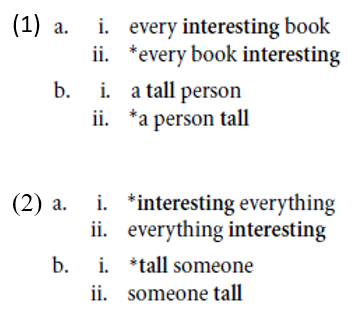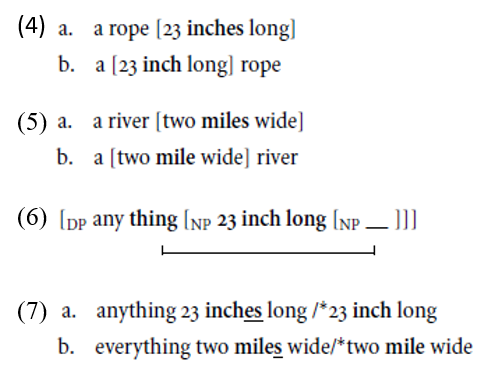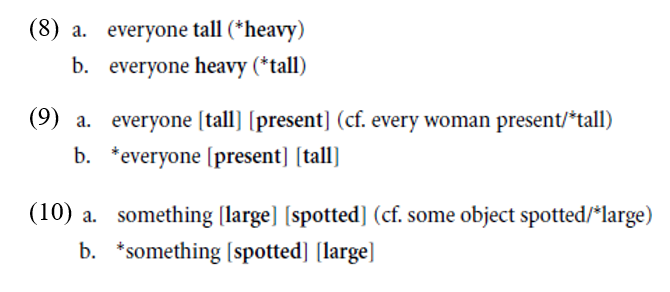

Grammar


Tenses


Present

Present Simple

Present Continuous

Present Perfect

Present Perfect Continuous


Past

Past Simple

Past Continuous

Past Perfect

Past Perfect Continuous


Future

Future Simple

Future Continuous

Future Perfect

Future Perfect Continuous


Parts Of Speech


Nouns

Countable and uncountable nouns

Verbal nouns

Singular and Plural nouns

Proper nouns

Nouns gender

Nouns definition

Concrete nouns

Abstract nouns

Common nouns

Collective nouns

Definition Of Nouns

Animate and Inanimate nouns

Nouns


Verbs

Stative and dynamic verbs

Finite and nonfinite verbs

To be verbs

Transitive and intransitive verbs

Auxiliary verbs

Modal verbs

Regular and irregular verbs

Action verbs

Verbs


Adverbs

Relative adverbs

Interrogative adverbs

Adverbs of time

Adverbs of place

Adverbs of reason

Adverbs of quantity

Adverbs of manner

Adverbs of frequency

Adverbs of affirmation

Adverbs


Adjectives

Quantitative adjective

Proper adjective

Possessive adjective

Numeral adjective

Interrogative adjective

Distributive adjective

Descriptive adjective

Demonstrative adjective


Pronouns

Subject pronoun

Relative pronoun

Reflexive pronoun

Reciprocal pronoun

Possessive pronoun

Personal pronoun

Interrogative pronoun

Indefinite pronoun

Emphatic pronoun

Distributive pronoun

Demonstrative pronoun

Pronouns


Pre Position


Preposition by function

Time preposition

Reason preposition

Possession preposition

Place preposition

Phrases preposition

Origin preposition

Measure preposition

Direction preposition

Contrast preposition

Agent preposition


Preposition by construction

Simple preposition

Phrase preposition

Double preposition

Compound preposition

prepositions


Conjunctions

Subordinating conjunction

Correlative conjunction

Coordinating conjunction

Conjunctive adverbs

conjunctions


Interjections

Express calling interjection

Phrases

Sentences

Clauses


Grammar Rules

Passive and Active

Preference

Requests and offers

wishes

Be used to

Some and any

Could have done

Describing people

Giving advices

Possession

Comparative and superlative

Giving Reason

Making Suggestions

Apologizing

Forming questions

Since and for

Directions

Obligation

Adverbials

invitation

Articles

Imaginary condition

Zero conditional

First conditional

Second conditional

Third conditional

Reported speech

Demonstratives

Determiners

Direct and Indirect speech


Linguistics

Phonetics

Phonology

Linguistics fields

Syntax

Morphology

Semantics

pragmatics

History

Writing

Grammar

Phonetics and Phonology

Semiotics


Reading Comprehension

Elementary

Intermediate

Advanced


Teaching Methods

Teaching Strategies

Assessment
Postnominal adjectives in English
المؤلف:
RICHARD LARSON AND HIROKO YAMAKIDO
المصدر:
Adjectives and Adverbs: Syntax, Semantics, and Discourse
الجزء والصفحة:
P61-C3
2025-04-07
888
Postnominal adjectives in English
English shows one environment where adjectives that normally occur only pronominally can occur after N. This is the so-called indefinite pronoun construction (IPC).1
Thus adjectives like interesting and tall normally must occur prenominally (1); however, when they occur with indefinite pronouns like everything/ something/anything/nothing, everyone/someone/anyone/no one, etc., they must occur in postnominal position, as seen in (2).

Many have tried to analyze the postnominal adjectives with indefinite pronouns as prenominal adjectives that have been stranded by N-raising (3):

However, as Larson and Marušiˇc (2004) show, this analysis cannot be correct: adjectives in indefinite pronoun constructions do not behave like underlying prenominal adjectives, but as underlying postnominal adjectives.
To give an illustration of the arguments, English measure adjectives show a difference in inflection when they occur pre- vs. postnominally, as noted by Sadler and Arnold (1994). In postnominal position, the unit phrase shows plural inflection (4a, 5a), whereas in prenominal position, it is uninflected (4b, 5b). If adjectives with indefinite pronouns were stranded prenominal modifiers, we would expect the inflectionless form (6). But this is not what we see. The form we get is the inflected one, characteristic of postnominal adjectives (7). This argues against the N-Raising analysis.

Another problem for the raising analysis concerns modifier recursion. Although indefinite pronoun constructions allow adjectives to occur postnominally that ordinarily could not occur there, only a single such form is permitted. As (8a, b) show, more than one such adjective yields ungrammaticality. Two postnominal adjectives are permitted when one of them would independently be allowed in the postnominal slot, as in (9a) and (10a), but here again there is a restriction. The adjective that is ordinarily disallowed in postnominal position must occur adjacent to the indefinite pronoun (9b, 10b).

None of this is predicted by the stranding analysis. Since adjectives stack in the prenominal position it is a mystery why two prenominal adjectives would be forbidden postnominally: the noun should just be able to raise around them (11).

Likewise, it’s unclear why there should be any ordering restriction.
Our Case-analysis permits a surprisingly simple account, however. Suppose that a determiner’s NP restriction – its internal argument – could incorporate into it, just as verbs are known to be able to incorporate their objects. Following Baker’s (1988) analysis of object incorporation in Southern Tiwa, we might expect the determiner’s single Case feature to be “freed up” for checking on a single additional argument.
We propose that this is what is happening with APs in English IPCs. The indefinite N (-one, -thing, -place, -where) incorporates into D, freeing its single Case feature for alternative checking. Exactly one AP is then licensed in the postnominal position by the free Case feature, as displayed in (12):

The ordering restriction we observe on the postnominal adjectives can then be understood as a version of the usual adjacency/minimality requirement on Case-checked items vis-a-vis their Case-checkers (13):2

1 The terminology “indefinite pronoun” is adopted here from the literature (see, for example, Haspelmath 1997), despite our reservations about expressions like everything and nothing being referred to as “pronouns.”
2 By contrast, postnominal modifiers that do not require case are predicted to stack freely and show no ordering restrictions.
 الاكثر قراءة في Linguistics fields
الاكثر قراءة في Linguistics fields
 اخر الاخبار
اخر الاخبار
اخبار العتبة العباسية المقدسة

الآخبار الصحية















 قسم الشؤون الفكرية يصدر كتاباً يوثق تاريخ السدانة في العتبة العباسية المقدسة
قسم الشؤون الفكرية يصدر كتاباً يوثق تاريخ السدانة في العتبة العباسية المقدسة "المهمة".. إصدار قصصي يوثّق القصص الفائزة في مسابقة فتوى الدفاع المقدسة للقصة القصيرة
"المهمة".. إصدار قصصي يوثّق القصص الفائزة في مسابقة فتوى الدفاع المقدسة للقصة القصيرة (نوافذ).. إصدار أدبي يوثق القصص الفائزة في مسابقة الإمام العسكري (عليه السلام)
(نوافذ).. إصدار أدبي يوثق القصص الفائزة في مسابقة الإمام العسكري (عليه السلام)


















